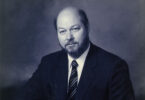In a few short weeks, I will join many of you at the 2014 PRSA International Conference, an event that brings together thousands of our members for three days of education, networking and personal and professional growth. This year’s theme, “Leading the Way: Fearless Future for PR,” is designed to help teach our members how to succeed and thrive in today’s transformative business and media environment. Speakers include everyone from Good Morning America’s Amy Robach and NBC “Meet the Press” Moderator Chuck Todd to Best-Selling Author Walter Isaacson, Fast Company Co-Founder Polly LaBarre and United Negro Fund CEO Dr. Michael Lomax.
During Conference weekend, we will also convene our Leadership Assembly – PRSA’s annual meeting, and a time when we look at the state of the society and tackle the challenges facing our own organization. Just as the Conference theme speaks to fearlessly adapting to the changes reshaping our profession, we must also do the same when it comes to our Society. One of the critical items that we will discuss at this year’s assembly is a bylaw amendment that will allow qualified members without the APR credential to run for the two At-Large positions on the national board. Acting in consensus, the 2014 PRSA Board of Directors issued the amendment while incorporating language that will ensure that the remaining 15 District and Executive Committee/Officer positions will continue to require the APR credential.
This decision was reached following a review of three years of independent research by three separate groups — Kelton Research, Organizational Performance Group (OPG) and Ketchum. Each study found similar results when it came to Accreditation. The majority of our membership sees the APR as a mark of personal achievement but not a validation of leadership ability.
PRSA is a community and it is important that we provide all of our members — including the 82% of our membership who do not hold the APR — to have a voice and representation at the national level. With this one change, we are able to do so while still upholding the importance that we as a Society place on Accreditation.
I am pleased to report that the response to date has been very positive. At PRSA national, we’ve received many comments from both APRs and non-APRs, crediting the proposed bylaw as a fair and sensible approach that allows us to uphold the importance of APR while providing a voice to non-APRs and allowing PRSA to tap into the full leadership potential of our organization.
The amendment has also been greeted by support from third-party experts and leaders who have deep insight into PRSA:
“I completely support the proposed change, which would bring additional perspectives and experiences to the board while still respecting the right of the membership, through the Nominating Committee and Assembly, to make the final choice as to who will represent them as leaders. ” — Bill Murray, former PRSA CEO
“This proposed amendment is smart, strategic and supported by our research which shows that APR is not viewed as a validation of leadership and that there is clear frustration among non-APRs across the member populace that their voices are not being heard.” — Danielle King, Senior Director, Brand & Media Communications at Kelton Research (conducted PRSA Member Value Research Study in 2012)
“We’ve conducted PRSA’s Membership Study since 2008. This year, we focused specifically on how members view APR among other topics. The most important quality for a PRSA Board member in this survey is leadership experience at the chapter, section and district levels. In other words, proven leadership experience is what PRSA’s members are looking for in Board members, not a professional certification.” — David B. Rockland, Ph.D., Partner, Managing Director Global Research, CEO, Ketchum Change, Chairman, AMEC
While, to date, feedback from our members surrounding the proposed bylaw change has been very positive, some members have raised concerns that the Board will need to manage governance very carefully to ensure that the value of APR is not diminished. To this point, it is very important to emphasize that the proposed bylaw amendment has no bearing on PRSA’s ongoing work to strengthen the APR; the Board is currently in the process of evaluating the recommendations made by OPG and the Task Force to Strengthen APR.
A copy of the amendment and the accompanying FAQs has been placed within the MyPRSA section of our website. Should you have any questions, thoughts or concerns about the proposed amendments please do not hesitate to contact me or our VP of PR Stephanie Cegielski.
As we prepare for Leadership Assembly on Oct. 11, I hope you will join me in advocating for this bylaw change, as we continue to work together to help preserve a strong future for PRSA.
Joe Cohen, APR, is 2014 Chair of PRSA.







As an APR (1984) who holds the designation rather dear, I’m pleased to strongly support this well-crafted amendment. Its passage will serve PRSA – indeed, public relations itself – very well.
George L. Johnson
APR, Fellow PRSA
Chair, PRSA Board of Ethics & Professional Standards
George, would you support re-certification for APRs every 5 years?
Claire, I might favor re-certification for the APR designation,but there are many questions to consider. For example, I see little point in retaking the same exam every five years. I can tell you there is more value to the APR than you seem willing to give it credit. My personal career progression, and that of other APRs I’ve been associated with, is evidence enough. Do you favor certification of the ability or the right to call yourself “a public relations professional,” regardless of membership in any group? There’s far more abuse in unqualified hucksters hanging out a shingle than anyone wants to talk about.
I’m glad PRSA has taken this important step. I actually left the organization as this issue heated up and PRSA originally dug in its heels on the issue. The research has shown (and common sense prevails) that you don’t need letters behind your name to be a leader.
Now the these questions should be answered. Namely, what is an APR? How do we let business leaders know of its value? If a designation is just an insider credential, then why are we spending so much time on this issue? Until PRSA stops playing inside baseball and starts answering the BIG questions facing our industry, I will remain a non-member until the organization turns toward the outside world and provides leadership on these issues. Some of them include measurement standards, ethics policing among PRSA ranks, etc.
On another note, I’m sure the PRSA board realizes that it’s not that attractive to run for a national at-large position. It’s akin to throwing a dog a bone. Each and every position should be open to both APRs and non-APRs.
I look forward to the time when the 82% majority has more to say about this issue. Until then, I’m not going to rejoin.
Sincerely,
Claire Celsi
(Not-an-APR)
Des Moines, Iowa
Left out of this message were some important details from last year’s study by OPG. Slide 28 talks about “standing behind the APR” to “increase credibility.” The OPG report said that, “All other studied benchmarking credentials require the certification to serve in leadership positions,” and “Abolishing the requirement to have the APR to serve in leadership positions would further undermine the APR.” The PRSA board commissioned this study only last year, and used it as the basis for the “Task Force for Strengthening the APR.” The task force’s report, while completed, has not yet been released to Assembly Delegates or members-at-large. And in the FAQs, we are told that the task force “chose not to review the issue of PRSA governance” as it relates to strengthening the APR. I find this puzzling. I also find it difficult to separate “strengthening the APR” from the issue of leadership and governance, especially in light of the OPG report. Would a board member of Apple publicly use a Samsung product? How would it look if he/she did? Would it inspire confidence in and support of the product? APR is a product created by PRSA 50 years ago. PRSA has been working to make the product more credible within the profession by expanding its use (successfully) to other PR organizations via the creation of the UAB. PRSA continues to be the largest financial contributor to the UAB. PRSA has promised for many years to strengthen the credential so that it has credibility beyond our profession. The bylaw amendment to not require some board members to hold the credential seems contrary to their goal of strengthening it, and does not outwardly demonstrate confidence in the very product and brand PRSA created 50 years ago.
Cindy,
Thank you so much for your thoughts and feedback. Regarding your comments, there are a number of items that must be considered:
Standing Behind APR/PRSA Leadership — under the proposed bylaw amendment, APR will remain a prerequisite for 15 of the 17 seated and the credential will be required to serve at the highest level of PRSA leadership, the Executive Committee. By opening up the two At-Large seats, we are still standing behind APR while providing a voice to our non-APR members (who comprise 82 percent of the Society).
Task Force to Strengthen the APR — the Task Force report is currently under the review of the Board. Based on the findings of the Task Force as well a review of other research including the 2014 PRSA Member Satisfaction Survey (which will be shared at Assembly), the Board will release recommendations in the coming months. The timeline was pushed back several months as the Board needed to allocate significant time and resources to manage our CEO search.
Strengthening the APR — PRSA remains focused on strengthening the APR. Acting on its own accord, the Task Force decided to focus its effort on enhancing and strengthening the credential itself, and not to take a stance on governance. That said, to again reiterate the point above, under the proposed bylaw amendment, APR remains a prerequisite for 15 of the 17 board seats and all Executive Committee positions. In order to hold the two At-Large seats, all other board qualifications remain including holding a leadership position at the Chapter, Section or District levels. These seats would not go to “competitors” (a la Apple vs. Samsung), but to hard-working volunteer leaders who are a part of the PRSA community.
I hope that my response helps to further explain the context and importance of the proposed bylaw amendment. Please know that I do very much appreciate your thoughts and feedback, and respect your passion for this organization that we both love.
Best,
Joe Cohen, APR
2014 PRSA National Chair